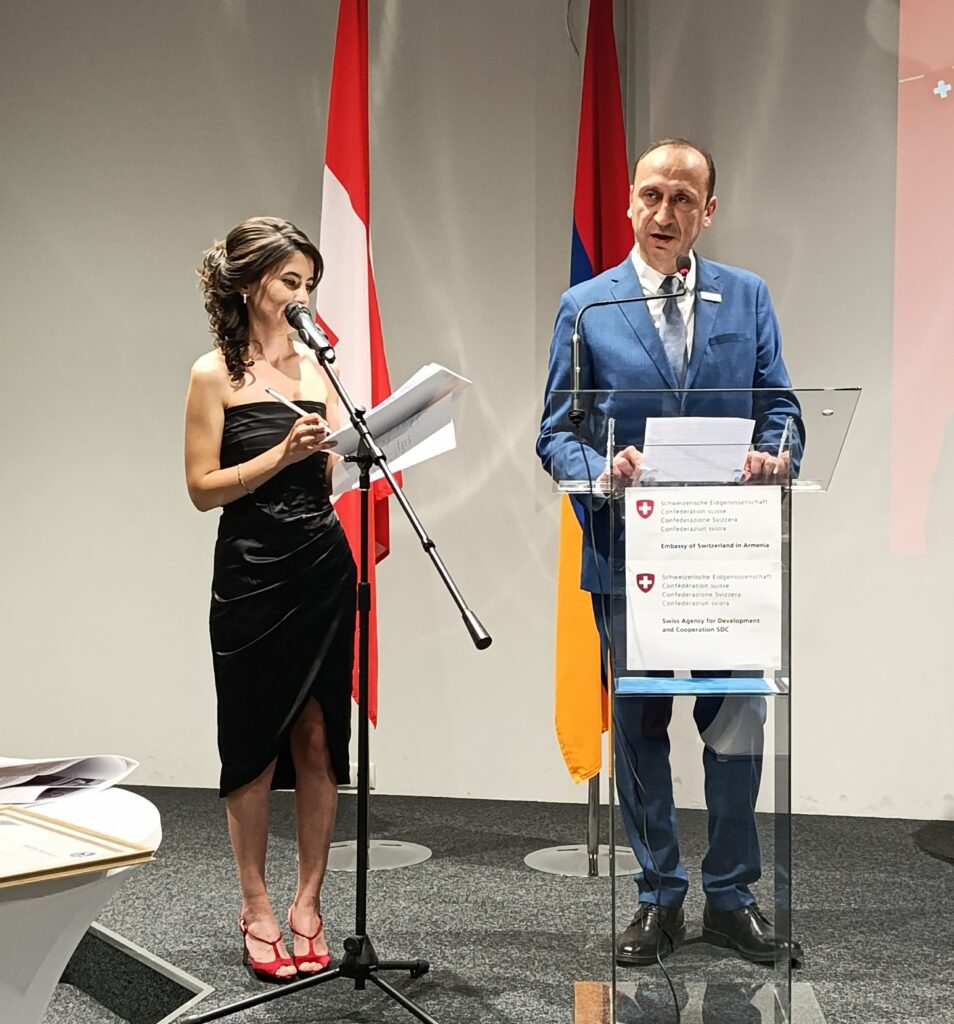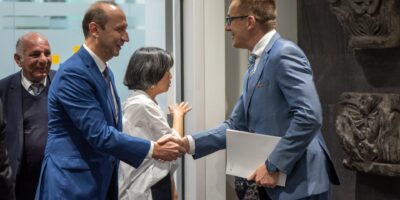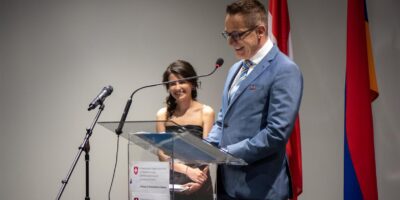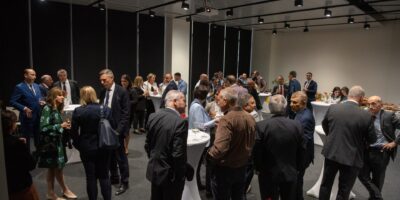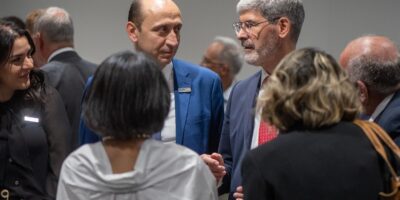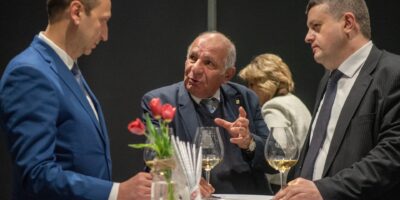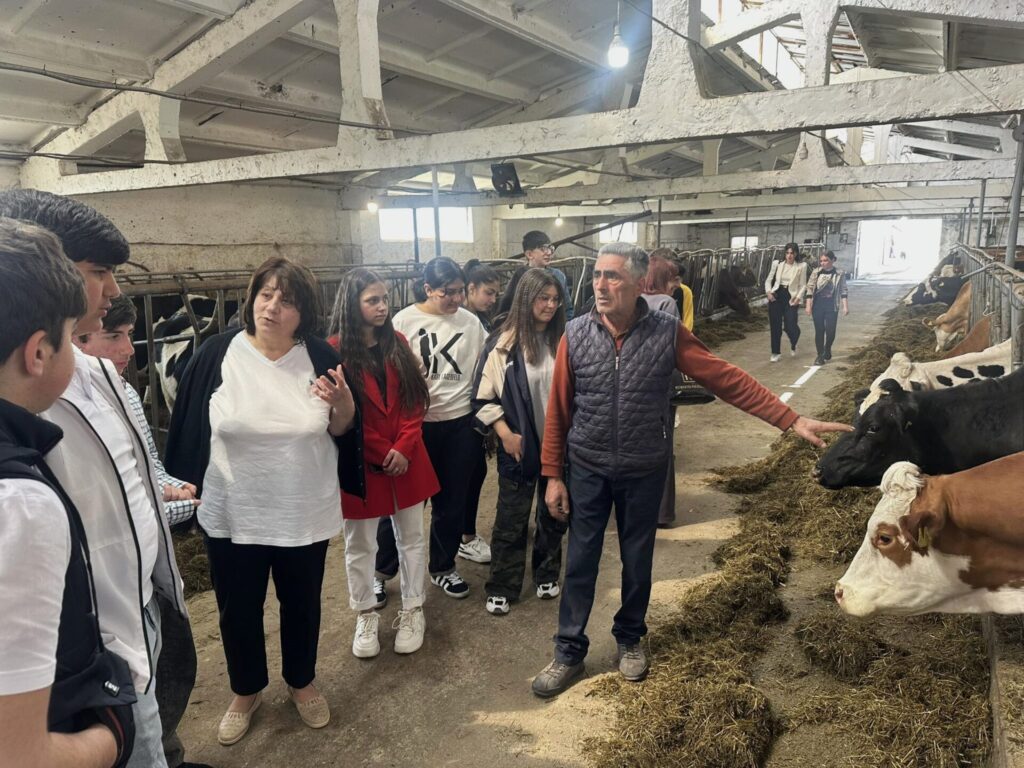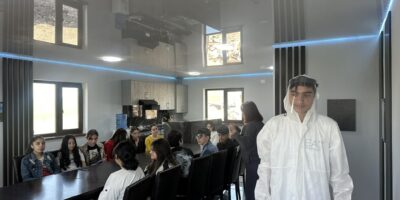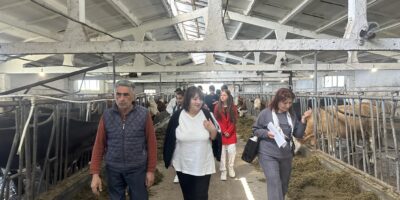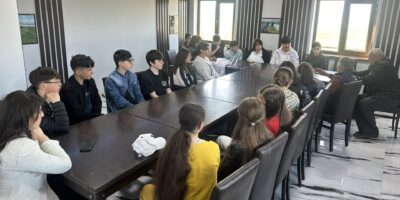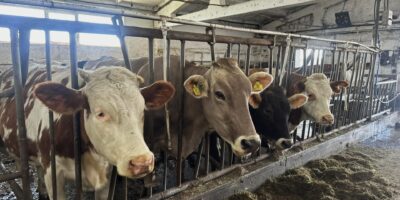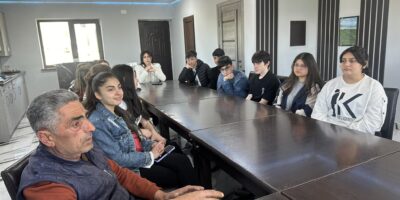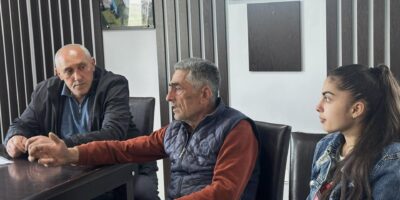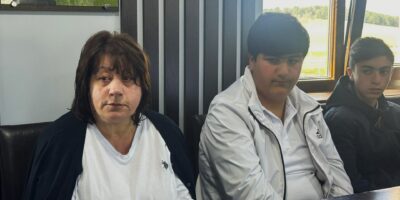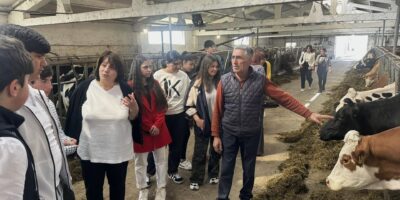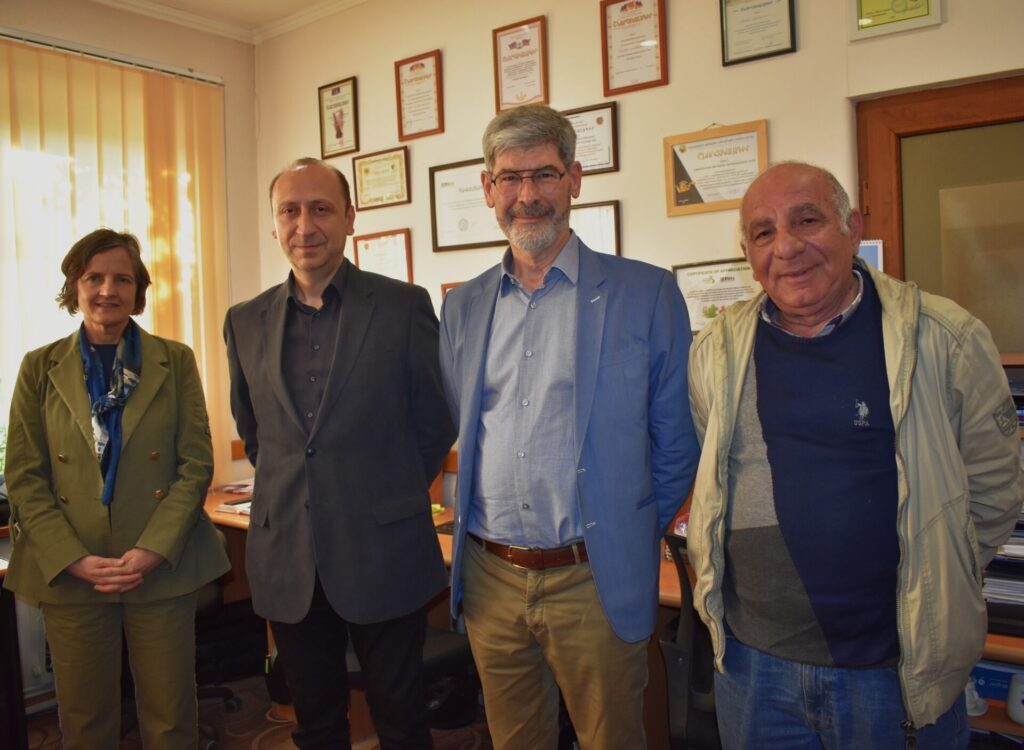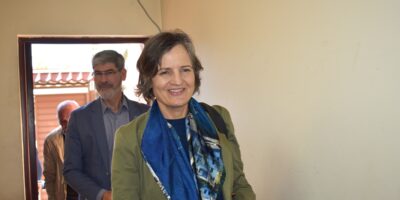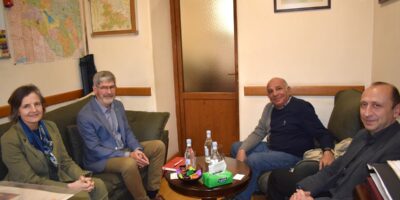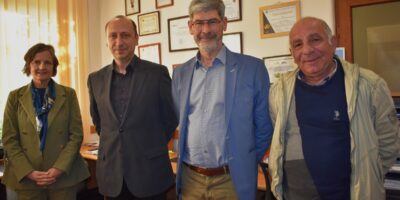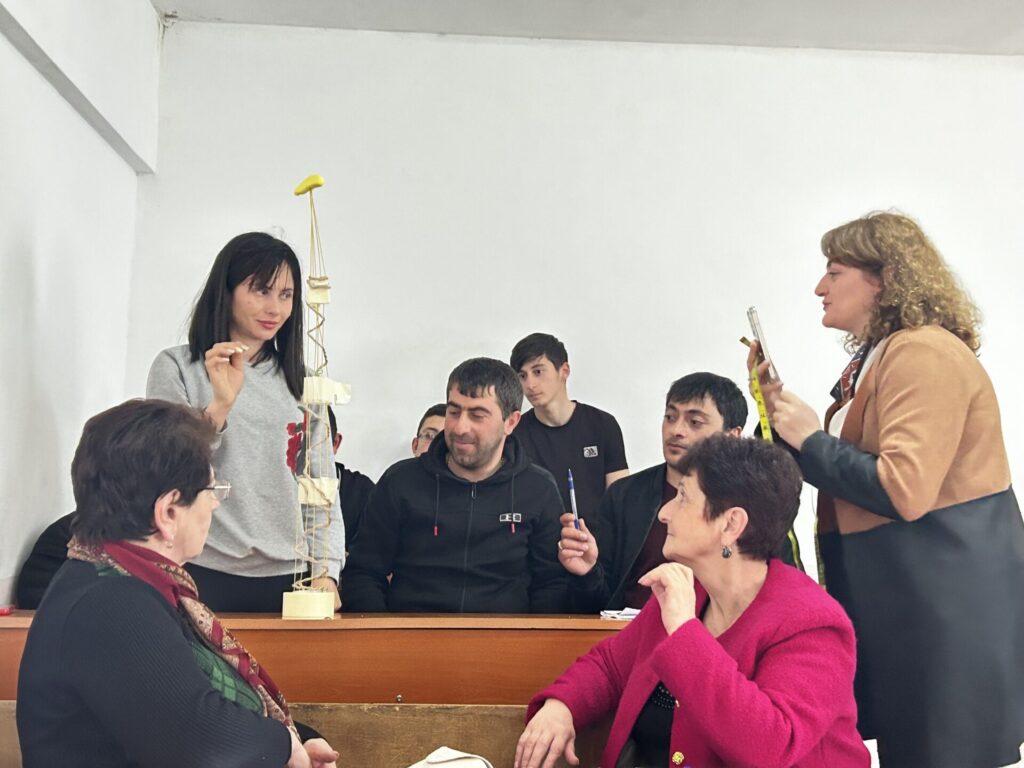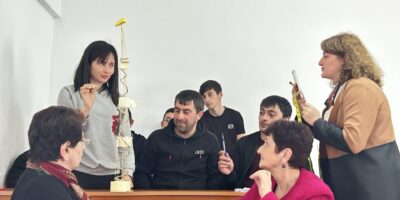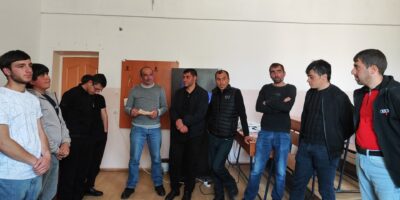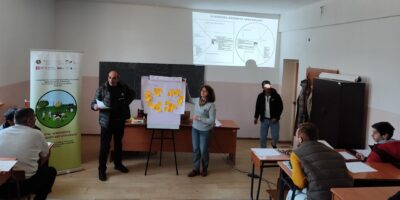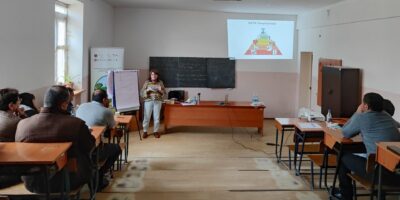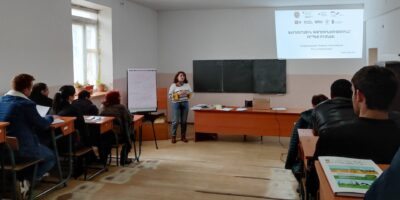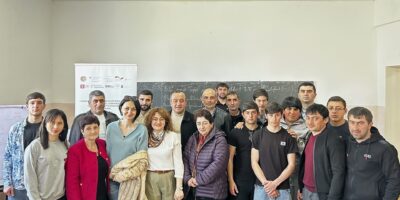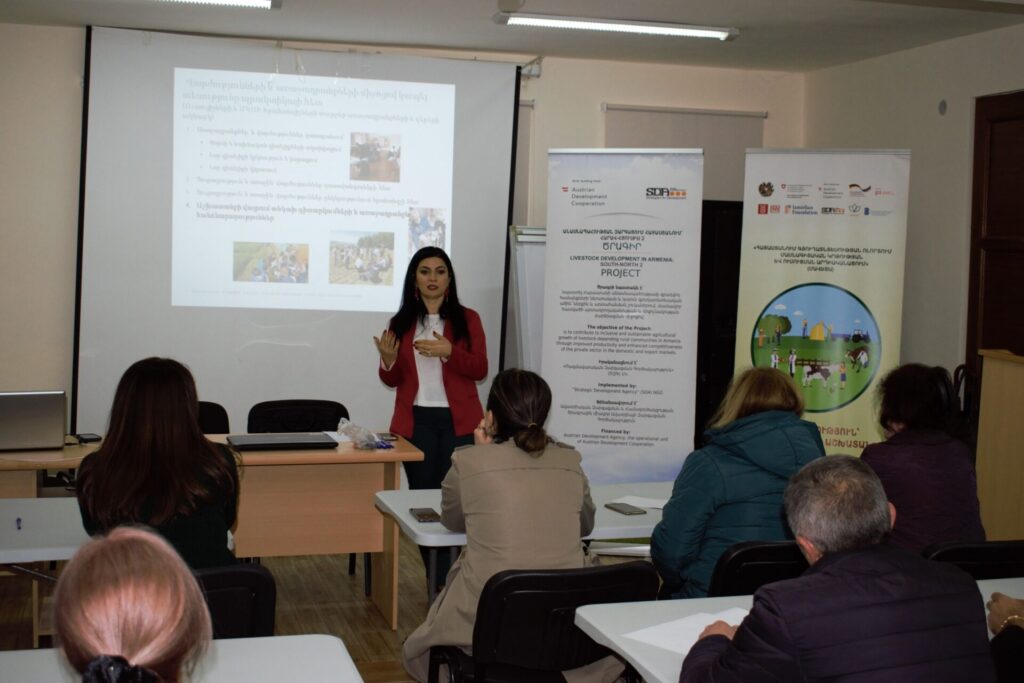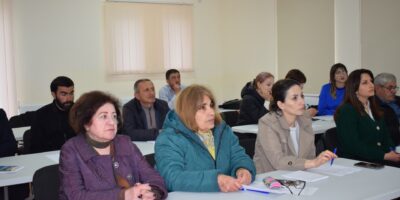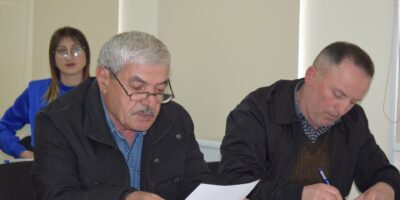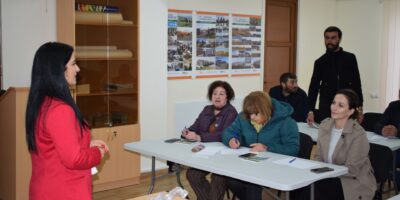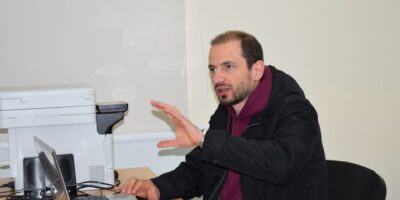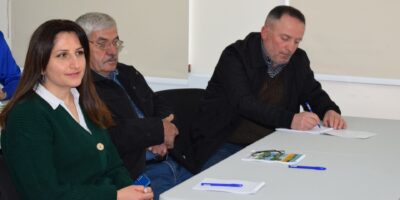Farewell Reception of Werner Thut, Deputy Head of Mission of Switzerland in Armenia
On April 17, 2024, the Embassy of Switzerland in Armenia invited the representatives of Strategic Development Agency NGO to the Farewell Reception of Werner Thut, Deputy Head of Mission of Switzerland in Armenia and also responsible for the Swiss Cooperation Program (SDC) in Armenia.
The event, held at AGBU Armenia, garnered the attendance of over 80 individuals from a number of Ministries and Government Agencies, the Armenian Parliament, international bodies, and the Armenian civil society.
The event was started with the speech of the Ambassador Extraordinary and Plenipotentiary of the Swiss Confederation to the Republic of Armenia H.E. Lukas Rosenkranz, who emphasized that SDC’s Armenia portfolio was fundamentally renewed since Werner Thut took office in August 2020.
Mr. Lukas Rosenkranz was followed by RA Deputy Minister of Territorial Administration and Infrastructure Vache Terteryan and Madeleine Rauschenberger, the Armenia Country Director of the German Agency for International Cooperation (GIZ).
Mkrtich Ayvazyan, the chairman of Strategic Development Agency NGO, as a representative of the long-term partner organization to SDC was honored to deliver a speech.
In his speech, Mr. Ayvazyan expressed gratitude for the long-term cooperation with SDC: “We deeply value the level of the trust that the Swiss Agency for Development and Cooperation (SDC) had in choosing us as their project implementation partner. Over the years, SDC and SDA have worked hand in hand to address challenges that Armenia face. Our joint efforts have improved lives of numerous people in more than 200 communities of Armenia”-said Mr. Ayvazyan.
Mkrtich Ayvazyan summarized his speech by thanking Mr. Thut for all the efforts he made in Armenia and wished all the best in his future beginnings.






